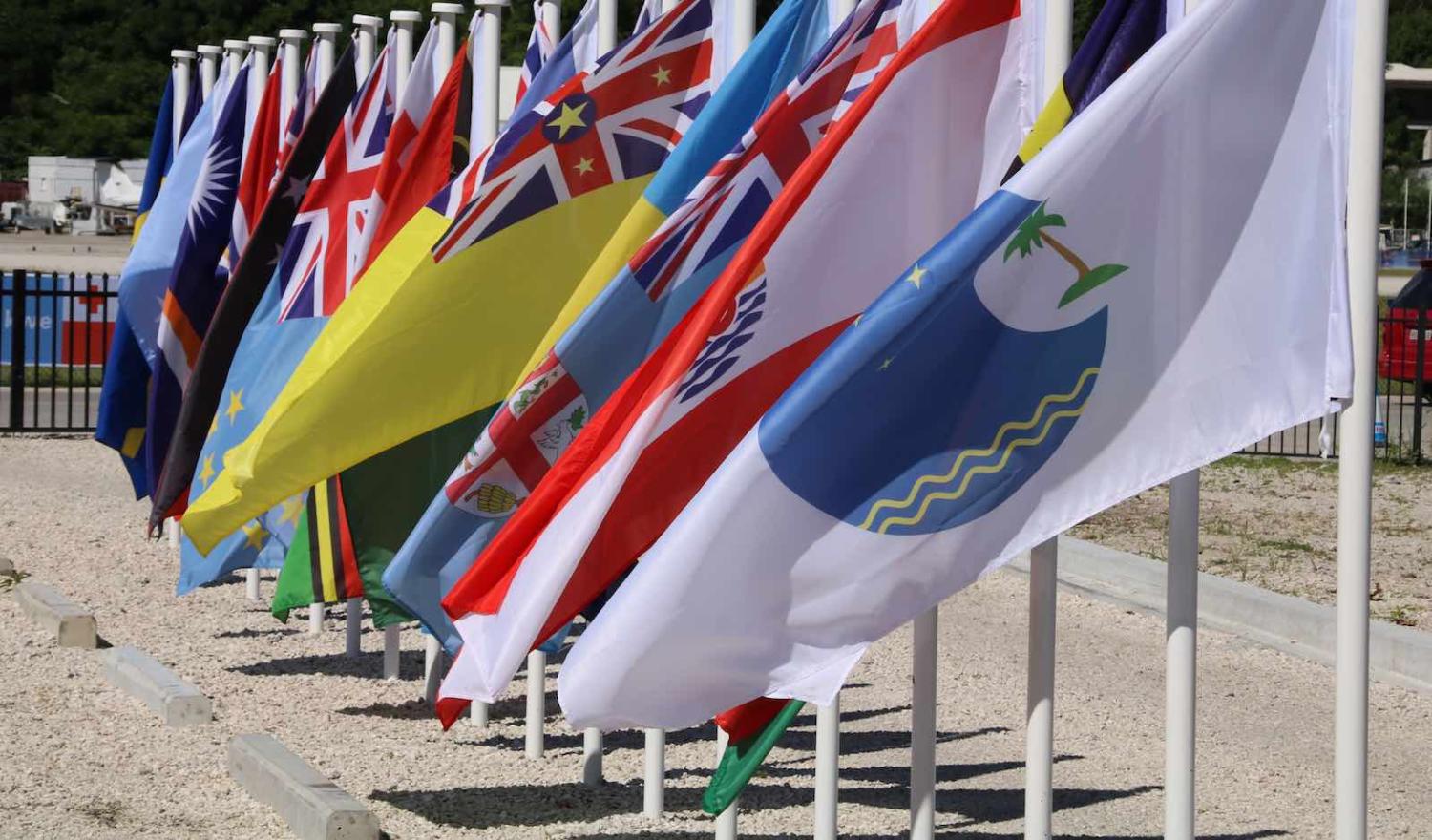Pacific Islands countries face the classic challenge as strategic competition unfolds across the Indo-Pacific, finding themselves wedged, like the proverbial meat in the sandwich, between two great powers. Small states do have agency, of course, and can influence the behaviour of larger powers. Amalgamating interests under the banner of a regional body such the Pacific Islands Forum (PIF) is one solution small states can employ.
The PIF is soon to decide on new leadership. Dame Meg Taylor, the present secretary general, participated in a webinar entitled Blue Pacific Futures, hosted this week by the Center for Australian, New Zealand and Pacific Studies at Georgetown University and the Center for Pacific Island Studies at the University of Hawaii, reflecting on the challenges and opportunities faced by the organisation.
It is important that the PIF represent regional interests in Washington proactively and not wait to be asked.
In her prepared remarks, Dame Meg underscored the importance of the PIF in engaging in “collective efforts in areas that are pertinent to our development as a region”. She said two primary goals had been obvious at the outset of her term, which began in December 2014: to reignite the politics of regionalism with a meaningful agenda and to ensure the voice of the Pacific people was heard and heeded.
Her success in “strengthening political relationships” was aptly demonstrated supporting efforts that resulted in the Boe Declaration (2018), the Kainaki Lua Declaration for Urgent Climate Action Now (2019) and the Pacific Humanitarian Pathway on Covid-19 (2020). It was also clear from engagement with civil society, as well as reforms to the Forum Secretariat and its operations, including funding.
These are, by any measure, enormous successes and a testament to the leadership and hard work that Dame Meg undertook as PIF secretary general. During the Q&A portion of the webinar, she identified other areas still in need of work. Whoever is selected as the next secretary general in January 2021 must build on the achievements won during her term.

One area of particular interest Dame Meg focus on was “an investment in future generations” through the provision of education. She expressed these views while answering a question about the proposed US Blue Pacific Act, which seeks to develop or expand programs combatting transnational crime, enhanced law enforcement, improving trade, public health, education and climate resilience.
The proposed $1 billion for Pacific Islands countries was a lot of money, she noted, but also said that nobody had asked the Pacific Island countries what they needed or how to best spend the money. With regard to investment in future generations, she observed that it was commonplace in her experience to drive through Beijing and see Papua New Guinean students who would call to her and wave hello. On the other hand, Dame Meg, who was educated at Harvard, bemoaned the relative lack of Pacific Island country students in the US. Ideally, she said, it would be welcome to see students from Pacific Island countries being educated in Hawaii and on the US mainland.
Washington, she said, was sometimes in the habit of believing it had consulted with Pacific Island countries because they had done so with Australia and New Zealand. This comment seems to suggest that Australia and New Zealand are used in Washington as ciphers for understanding the region’s interests.
One can certainly see her point. As the secretary general of PIF and a former PNG diplomat to the US, she might understandably feel Washington has not sufficiently engaged with Pacific Island countries. She is probably right.
Yet small states, and regional bodies that represent small states, should take heed of advice given by Chris Seed, secretary of New Zealand’s Ministry of Foreign Affairs and Trade. He said in 2018 that a small state’s influence (and I would add regional organisations representing them):
Is ultimately determined by its relevance. This in turn depends on its ability to tell its story and to sell its values and ideas. It must be seen by partners as both interested and interesting – engaging and engaged.
Small states must know their value proposition, said Seed, and then to “go out and sell their story and their ideas.”
The remedy to this problem going out and selling the Pacific Islands countries story, I believe, is three-fold.
First, the new secretary-general should be somebody who is familiar with Washington and able easily get access to policy and law makers. Dame Meg certainly came to her job at the PIF with a solid background in the US having been the PNG ambassador to Washington and then working the International Finance Corporation headquarters just blocks away from the White House. Her replacement should be equally well versed in working with Washington.
Second, US ambassador to Fiji Joseph Cella should redouble his efforts to communicate and work with the PIF secretariat in Suva. Equally, the PIF Secretariat should make time to engage him further, too. Such face-to-face meetings need not be formal, but go a long way to building trust and deepening communication, building a rapport and informally exploring ideas.
Third, the PIF might consider accrediting a representative to the US to create a stronger communication channel. One cost-effective way of doing this might be to ask one of the Pacific Island countries ambassadors in Washington to take on the additional representational role. Ambassador Hersey Kyota of Palau is the dean of the diplomatic corps in Washington, having started his service in 1997. Certainly, he has the experience to effectively open doors for PIF interests and “go out and sell their story”.
Dame Meg’s concern about communication with Washington is not without merit, but it is probably not something the Americans are going to fix by themselves. Rather, it is important that the PIF represent regional interests in Washington proactively and not wait to be asked. After all, neither small island states nor the regional body representing them need be the meat in the sandwich.


